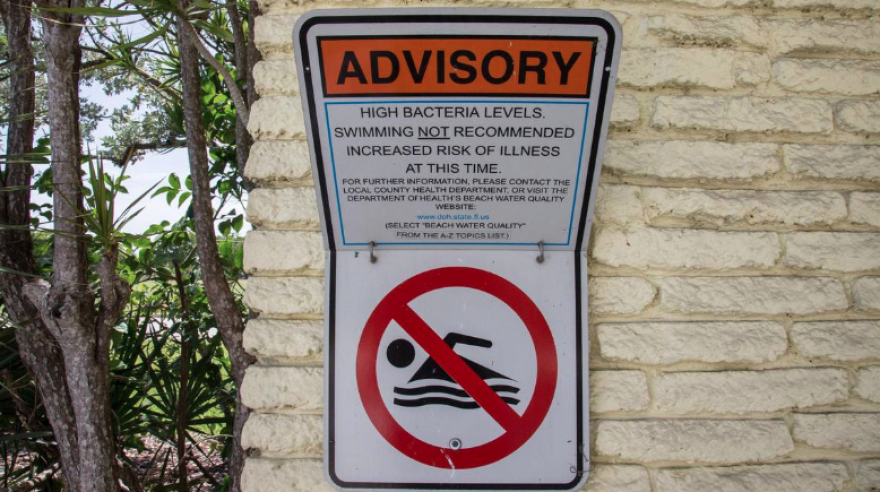Dirty beaches in the wake of record-setting king tides across South Florida this week should come as no surprise, scientists say.
“No, there’s not any coincidence,” said Florida International University geochemist and water quality expert Henry Briceno.
Just days after record-setting tides, Florida Department of Health officials issued warnings Thursday about unsafe levels of bacteria at four Miami-Dade County beaches: Crandon Park’s North Beach, Virginia Key, Cape Florida and Surfside at 93rd Street. They told swimmers to stay out of the water.

Onshore winds likely helped trap water following king tides that started on Sunday, Briceno said.
But the dirty water was likely made worse, he said, by king tides that can push seawater both over land and underground. When that saltwater moves inland, lighter fresh groundwater gets squeezed upward. As it moves through soil, the water can pick up pollution from leaky sewer pipes, septic tanks, dog poop and other contaminants.
“Those waters are not clean waters,” Briceno said. “They have a lot of bacteria and they have fecal matter that comes from sewage.”
Since 2014, Briceno has been monitoring water around Biscayne Bay near stormwater outfall pipes. In 2016, he infuriated Miami Beach officials after documenting high levels of human waste in stormwater coming from new pumps installed to address rising seas. Briceno said he conducted the study to show what a future with increased pumping up and down the coast could look like. At times, he said he’s detected fecal matter about 500 times higher than allowable levels near outfall pipes on the bay.
“We have a permanent flow of polluted waters into the groundwater and into Biscayne Bay,” he said. “When we have high tide, we have this phenomena enhanced by the king tides.”
Miami-Dade has been struggling to upgrade its aging sewage system and is under a court order to stop leaks and complete $1.8 billion in fixes in seven years. In September, a month after a 55-year-old pipe cracked under the Oleta River and spilled more than a million gallons of raw sewage, county commissioners approved a budget that hiked water sewer fees to collect about $873 million for repairs.
“In the future, we are going to have these high water levels more permanently,” Briceno said. “What we see now as an event linked to king tide is going to be a more permanent condition. And that's very sad. That's a very grim future.”






